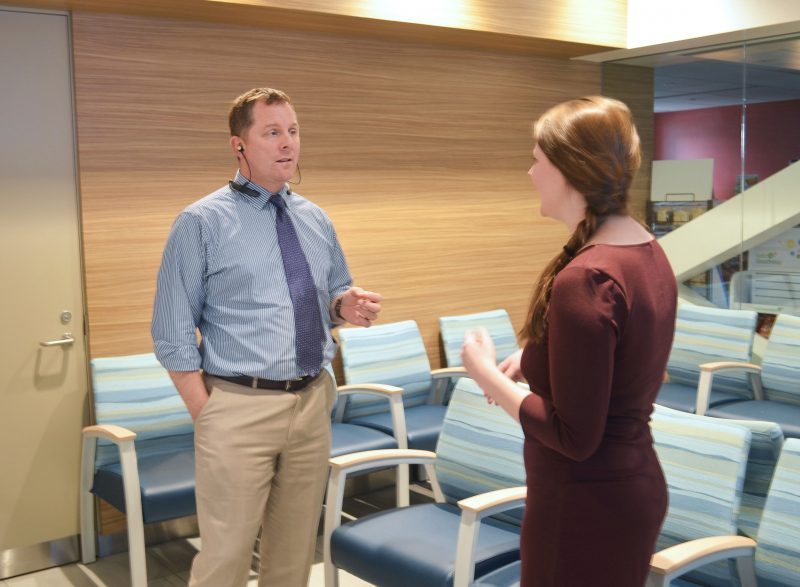A hearing aid doesn’t mean that you’re old, and wearing headphones designed to help you hear does not make you rude. Hearing devices — hearing aids, cochlear implants, hearables and more — are remarkable technology to keep you hearing well into the future.
There’s lots of good stuff to hear. I fall in love with my partner again every time I hear her describe her day over dinner. Every four years, I get excited when I hear beeps signaling the start of a giant slalom ski race at the Winter Olympics. I can’t wait for Pearl Jam to drop a new album.
Within a few years, I’ll be celebrating my 50th birthday. I find that restaurants sound noisier than they did before, so I don’t go out as much. I sometimes prefer a different TV volume than my partner, and this changes what and how we watch. I’ve missed appointments because I misheard the time or date when scheduling, and that’s embarrassing. It’s not you – it’s me. I know my hearing isn’t what it used to be.
It doesn’t have to be like this. I have options, and so do you.
Hearing Aids, Hearables and More
One option, for me, is to get a hearing aid. To do this, I’ll get a hearing test with an audiologist, and likely be a candidate. This tiny device was designed to be both invisible – either sitting behind or within my ear all day, and to process sound in a way that compensates for my hearing loss. I’ll need to have it adjusted periodically by a professional to sound best for me and to fit comfortably in my ear. I can connect it to extra microphones to hear better in noise and to my smartphone to hear my phone calls.
Another option is to get a “hearable,” a relatively new technology. Hearables are headphones that do more than just play music. Many are equipped with the same sound processing that hearing aids have. I can wear the hearable only when I need it and use it to help me hear a conversation or my music – or both at the same time.
Hearables are consumer devices — not medical devices. They don’t require professional services, and they can be much cheaper. They’ll likely become more popular — and available — over the next few years, due to a new law passed last year instructing the U.S. Food and Drug Administration to create a new class of over-the-counter hearing aids.

For now, I’ve chosen the hearable path — with some extra professional services to have them custom fit to my ear. Some people have hearing issues more complicated than mine, and really do need an audiology clinic’s help. But most people my age could be well served by either over-the-counter hearables or hearing aids fit and programmed by an audiologist.
But there’s a catch. Society seems to have labeled people who use hearing aids as “old.” For many, hearing aids are for their father, even when they’ve got children or grandchildren of their own. And people who walk around with earphones in are “rude” because they’d rather interact with their smartphone than the people standing right next to them.
I want to be neither old nor rude. I just want to hear better. Those of us who have figured out how to stay engaged in sound need to change the perception of everyone around us.
Hear the Future… and Prepare For It
Until it’s as natural — and perhaps fashionable — to use devices to help you hear as it is to use glasses to help you see, we might need to show off our hearing devices and demonstrate how they integrate into our modern digital lifestyle rather than hide them.
On March 3rd, we’ll celebrate World Hearing Day, which empowers us to “hear the future… and prepare for it.” I can hear the future, and I’m preparing Mass. Eye and Ear Audiology for it by changing the way we do business. We’ll sell hearing aids that make you feel young, because of what you will be able to do with them. We’ll sell hearables in places you’ll want to use them. We can help you to decide what’s right for you, and we’ll make whatever you use work best for you.
If you can’t hear the future, I hope you’ll visit us soon.
Kevin Franck, Ph.D., MBA, CCC-A, is director of Audiology at Mass. Eye and Ear.